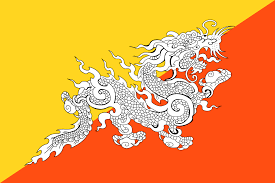Bhutan Aftermath: Experiencing the Ethos of Democratic Rule
For less than one million Bhutanese population, the year 2008 ushered in a new era of governance. The year witnessed the melting down of a century-old monarchy to a democratic constitutional monarchy. A parliamentary democratic government was formed in the nation based on the universal adult franchise. The Himalayan landlocked country drafted a constitution with provisions of 35 articles and four schedules, with the prior objective to eradicate Bhutan's backwardness and accelerate development. The rulers of the country believed that a viable form of democracy would be used for hammering out some of the ills in the country, such as corruption, unemployment, backwardness, and so on.
Fulfilling the dreams of the former kings, a democratic government was established by promising several democratic achievements while protecting and safeguarding its unique tradition and culture. But the transition from monarchy to democracy in any country requires a change in the fundamental political, religious, and economic structures over which the country has existed. But even after one year of its democratic rule, many promises are yet to be fulfilled.
The delay in deciding priorities of the 10th Five Year Plan (2008-2012) by the government seriously affected the nation's economic development. The new public-private partnership (PPP) idea also did not work well. The government was callous, resulting in endemic economic and development problems. The government carelessly handled the global economic crises and the price rise as they did little to overcome them. The unemployment problem has been rising since the new government was in power.
The government could not keep the promises of giving full rights and liberties to the people in the last year of their democratic rule, which is one of the essentials of democratic rule. This new Constitution has censured and restricted the right to freedom, speech and expression. Even though the Constitution gives freedom to the press and other forms of dissemination of information, including electronic media, the government holds control over it. It prevents them from going against the government or the King.
Human rights in the country have improved considerably after the transition to parliamentary democracy in the last year. But, the government has not improved as envisaged in the country's Constitution. The government failed to protect and safeguard the human rights of the refugees in the country. Women were mainly excluded from the nation's all-round development, and they were discriminated against and exploited.
So far, the democratic government failed to control forgery, corruption, nepotism and favouritism among the government employees. The promises of good governance to the people were left as a dream to the people.
However, the unique culture of the nation, Drukpa Culture – the culture of the ruling class, who follow the Drukpa sect of Mahayana Buddhism, was affected by the policy of modernisation in the country. The younger generations tend to run with time and admire modern culture. The government could not protect the traditional culture, which has been affected by Western culture and trends as they started welcoming more and more foreign tourists to boost the tourism industry and show Indian movies and Western-style fashion shows in the country.
The Judiciary in Bhutan showed a dramatic change after the democratic transition in the nation. The Supreme Court became the appellate authority in the nation. Even though the Constitution states the judiciary is independent and has jurisdiction over all matters, the jurisdictions on the matters of refugees are still not specified. The lawyers remain fearful of defending those the government has charged with committing an 'offence against the state' even after the system is declared independent.
The foreign policy of the nation is, in a way, controlled by the King himself. The government has a limited role in shaping Bhutan's foreign policy. The foreign minister is merely a representative of the King, and the government or ministers have no power to invite a foreign diplomat or political leader to Bhutan. The nation became a presidential or semi-presidential system on the matters of its foreign policy than a parliamentary system.
Holding an election is not the sole barometer of a thriving democracy. The ascent of democracy should be met with an intensified fight for 'real democracy', absent in Bhutan in the last year of its democratic rule. The regime's election, which is half-baked, incomplete and severely flawed, is merely an attempt to knock out the monarchical image of the nation.
